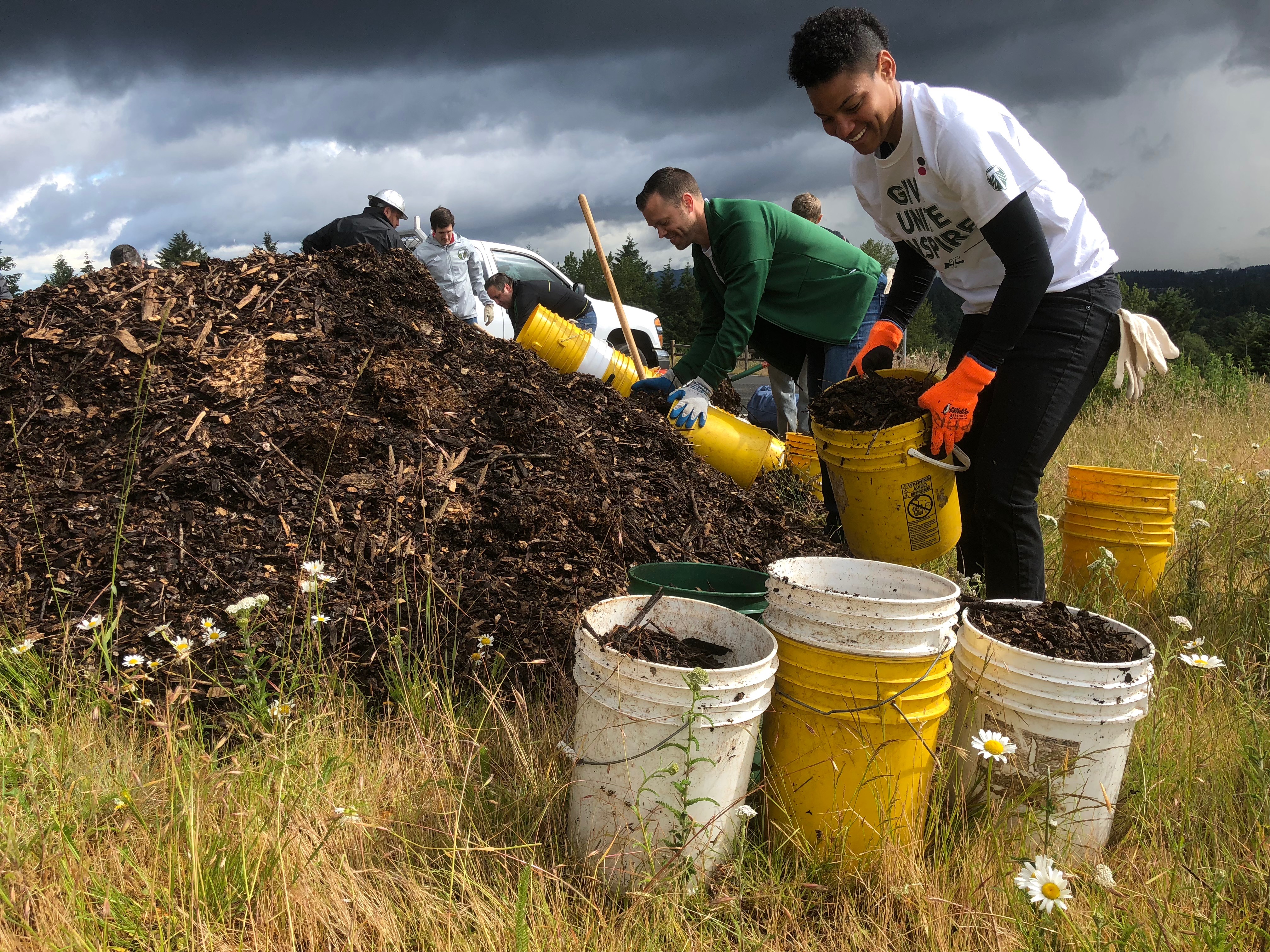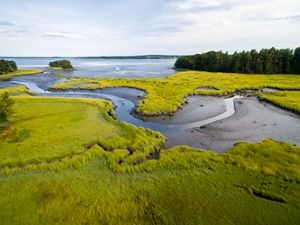Through the National Geographic Society and The Nature Conservancy’s cutting-edge externship program, global youth are learning about the challenges facing our world and forging new ways to help solve them. The program partners secure support to offer this seed funding, and then experts from both organizations review applications through a rigorous selection process. Once selected, each extern receives $2,000 in seed funding to help them put their ideas to work on the ground—with incredible results.
What’s an Externship?
An externship is a new training and collaboration structure to support real-world learning. Aligning with the global shift to virtual education and remote work, mentoring and instruction happens online, and each participant determines their schedule, research topic and action steps. Learn more
-
152
Community projects have received funding
-
$303K
Awarded in seed funding
-
52
More than 52 countries represented
Explore the Work
Since the fall of 2021, externs have been using the seed funds to execute their vision on the ground, show proof of concept and leverage their real-world results for additional funding that will carry their work even further. Here's a closer look at some of those projects.
Restoring Reefs in Bali
Brigitta Gunawan’s externship research focused on the future of Bali’s coral reefs. Her digital presentation, “A Tale of Bleached Cities,” explored the many benefits coral reefs provide and the mounting challenges that threaten their survival. Now, through the seed funding she was awarded from the program, she’s helping restore them.
In 2022, Brigitta collaborated with a local diving community to deploy 30 coral structures in the Karangasem Marine Protected Area of Tulamben, a small fishing village off the north-east coast of Bali, for Earth Day. This coral transplantation forms the number "30" on the ocean floor and establishes the "30x30 Coral Garden: An EduRecreation Site" with plans to span one hectare. During the event, children from two local villages took part in a sharing session about the ocean, a beach clean-up and a demonstration of how corals are transplanted, as well as snorkeling and scuba diving activities. Most of the children were snorkeling and diving for the first time ever.
Results: The event was attended by more than 80 people. The coral survival rate is more than 50% on average.
“This project allowed me to learn by doing as I put my plans into action. Fostering such a big event also gave me a memorable hands-on experience, and I am now confident to lead another similar event.” —Brigitta Gunawan
Tackling Unsustainable Fishing in Colombia
Isla Fuerte is a small island in the Colombian Caribbean that’s home to around 2,500 people, crystal clear waters and nearby coral reefs that provide much to both nature and people. A recent rise in tourism is increasing pressure on the reef and native fish populations, which were already suffering from overfishing and unsustainable catch methods.
For his externship, Juan Francisco Suescún dove into the challenges facing Isla Fuerte’s native fisheries and its anglers, who are often torn between protecting this important natural resource and feeding their families. He used photography to understand the relationship between the community living on the island and the reef ecosystem that they economically depend on. With the seed funding he received, he traveled to the island, engaged stakeholders and set up a number of conservation initiatives, one of which was to connect local, artisanal anglers with a market that pays for low impact fishing methods. He is also working hand-in-hand with tourism establishments and the local government to create initiatives that protect key species, while targeting other harmful ones, such as lionfish.
Results: Juan’s efforts protect the food security of more than 100 families on Isla Fuerte.
“The idea is that co-creating sustainable fishing initiatives with the local community and their knowledge of the local ecosystem will create long-term follow through, while documenting the process through visual storytelling will bring support from key partners and inspire conservation action at a local level.” —Juan Francisco Suescún
Fighting Invasive Fish in Ghana
As the only natural lake in Ghana, Lake Bosumtwe fills an important role for nature and people. But today it faces many challenges, including invasive Nile tilapia that threaten native fish populations. Isaac Badu Sowah focused on this issue for his externship, along with multi-pronged ways to address it, from outreach with local fishers to community-based fisheries legislation.
Through his seed funding award, Isaac and his team traveled door-to-door around Lake Bosumtwe, visiting the homes of fishers to educate and engage them on the issue of invasive tilapia.
Results: By the end of the community engagement sessions, Isacc and his team engaged and educated 64 fishers, as well as an additional 11 members of the community involved in other occupations. More than half—a total of 52—agreed to their proposed solutions. During their visits, local leaders and elders told them their efforts will help boost a new program that seeks to provide standard nets with increased mesh sizes to help remove Nile tilapia from the lake.
“I believe there can be greater impact if extensive work focusing on all the 22 communities is done to help conserve biodiversity in the lake. Also, I believe periodic studies can be conducted to yield data on the lake’s fish diversity, population and distribution.” —Isaac Badu Sowah
Researching Groundwater in The Gambia
Sea levels are rising around the world, and in The Gambia, both people and nature are feeling the impact. But Betty Jahateh is working to change all of that. For her externship project, she focused on how climate change is causing saltwater intrusion in both groundwater stores and the Gambia River, which has led to the loss of biodiversity and mangrove forests along the Bintang Bolong tributary.
After completing her externship, Betty applied for seed funding so that she could convene a team to assess and monitor salinity changes, growth rate and survival rates of the area to promote mangrove reforestation.
Results: Betty and her team have successfully collected data from seven villages, creating the first set of baseline data on both aquatic and soil salinity of different locations along the Bintang tributary. This has helped them understand the average environmental quality of the tributary and the impacts of climate change on nearby communities, including loss of rice fields.
“Now that I know what each community needs (in terms of nature-based solutions), I [will] continue looking for other grants to scale up the project to be both research and collaborative work on nature-based solutions with each community that is negatively affected by saltwater intrusion.” —Betty Jahateh
A Festival for the Future in Colombia
The Chocó region in western Colombia is rich with untouched rainforests, tropical islands and mangroves, but today, excessive amounts of marine plastic threaten both natural habitats and wildlife. Tomás Pinzon studied these issues throughout the course of his externship and, as part of his final project, presented solutions that included outreach and education. In the summer of 2022, he received seed funding to bring his vision to life through the Festival del Mar—the Festival of the Ocean—in the remote town of El Valle, which is located in the Chocó approximately 100 miles west of Medellin.
Results: Approximately 60 students took part in the first Festival del Mar event, which communicated the importance of taking action for the ocean.
“For me this was a dream come true, literally. It was very challenging, very hard at times, but I always had the motivation to continue to tackle the challenges.” —Tomás Pinzon

Growth Potential
See how the externship program began and meet three alumni who are already making a difference in their communities.
Stay Up to Date on Stories Like This One
Get updates from the conservation world & learn how you can get involved.








